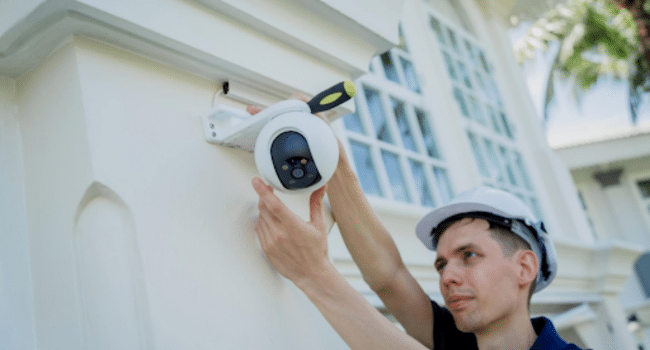Table of Contents
Installing CCTV is one of the smartest investments for protecting your home or business, but the costs can vary widely depending on your needs. Many people approach it the wrong way: either going for the cheapest option and facing poor performance, or overspending on features they don’t actually require. The key is to set a realistic budget that balances affordability with reliability, ensuring your system performs when it matters most.
Understand the Core Costs
Before putting together a budget, it helps to understand the main elements that comprise a CCTV installation cost. These generally include:
- Equipment. Cameras, recorders, cabling, and storage. Higher resolution and advanced features like night vision or motion detection increase costs.
- Installation. A professional setup ensures optimal coverage and fewer blind spots.
- Monitoring and Maintenance. Alarm monitoring, remote viewing, software updates, and occasional servicing are needed to protect your investment.
Recognizing these categories makes it easier to avoid underestimating the total cost or being surprised by hidden expenses.
Prioritize Security Needs
Not every property requires the same level of coverage. A warehouse may need wide-angle cameras and multiple entry point monitoring, while a small retail shop might only need front entrance and cash register surveillance. The rate of shoplifting of items priced $5,000 or less has recently increased. By matching your security goals to the system design, you avoid unnecessary spending. Ask yourself:
- What areas are most vulnerable?
- Do I need 24/7 recording or just motion-activated clips?
- Is remote monitoring a must-have?
This focus ensures you put your budget toward features that actually address your needs.
Avoid the Cheapest Route
It can be tempting to buy a low-cost DIY kit from a big-box store, but these systems often have limited resolution, poor reliability, and minimal technical support. Cheap cameras may work for a short time but fail under weather conditions or deliver grainy footage that is useless in an emergency. Spending a little more upfront on commercial-grade equipment and professional installation provides long-term security and fewer replacements.
Balance Quality and Quantity
Some buyers assume more cameras mean better security, but placement and quality matter far more. A few well-positioned, high-resolution cameras can cover a space better than a larger number of low-quality ones. Professional installers can map out sightlines and recommend the ideal setup, reducing the number of devices you actually need and saving you money.
Plan for Ongoing Costs
Your budget should also account for the future. Regular maintenance keeps systems functioning properly, while software updates protect against vulnerabilities. Cloud storage or subscription monitoring services will carry monthly fees. These costs are often overlooked but critical to sustaining reliable surveillance. Treat them as part of your security plan, not an added expense.
Smart Ways to Save Without Cutting Corners
There are ways to keep costs under control without compromising effectiveness:
- Bundle Services. Some providers offer discounts if you combine CCTV with alarm systems, access control, or monitoring.
- Scale in Phases. If you need to, start with the most critical areas and expand coverage later.
- Choose Hybrid Systems. Mix wired and wireless solutions depending on location and accessibility.
- Leverage Remote Access. Using mobile apps to monitor cameras can reduce the need for more complex control room setups.
These strategies help balance protection with affordability while leaving room for upgrades as your needs grow.
Work with Professionals
A qualified installer not only ensures proper placement but also helps you avoid costly mistakes like poor cabling or blind spots. They can recommend systems suited to your budget and provide guidance on scaling up later. While professional services add to the upfront cost, they deliver value in reduced downtime, stronger system performance, and warranties that protect your investment.
Final Thoughts
Budgeting for CCTV installation is not about finding the cheapest option or overspending on unnecessary extras. It is about understanding your needs, focusing on quality where it counts, and preparing for ongoing costs. By making informed decisions and working with established professionals, you can protect your property with a system that fits your budget and delivers peace of mind for years to come.
Image source: Freepik
